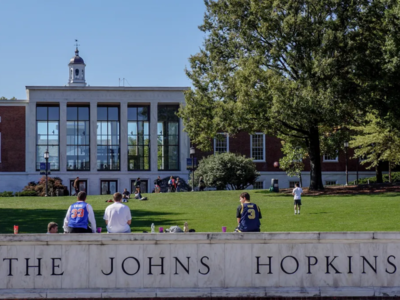
Johns Hopkins hit hardest as US slashes billions in university research funding
Johns Hopkins University, the top recipient of federal research funding in the United States, is facing an unprecedented financial crisis as the Trump administration aggressively cuts billions in aid flowing to American higher education institutions.
While not directly named in official government actions, Johns Hopkins is reeling from a political wave aimed at defunding universities that conservatives claim have become ideologically biased and fiscally bloated.The institution, which receives roughly $4.2 billion annually in federal research support, has already lost $800 million in funding and laid off over 2,000 employees. According to The New York Times, these cuts have impacted both international and domestic research, jeopardizing critical public health and scientific projects worldwide.The political rationale behind the cutsThe Trump administration has framed the move as a response to what it calls the ideological drift of elite universities. As reported by The New York Times, administration officials argue that major research institutions have evolved into "bastions of leftism hostile to conservative thought," using taxpayer money to promote what they label as radical agendas. Russell T. Vought, Director of the Office of Management and Budget, stated that current government spending was "contrary to the needs of ordinary working Americans" and too heavily tilted toward institutions aligned with gender and climate ideologies, which he called "antithetical to the American way of life.
"This broad criticism has translated into sweeping budget proposals. A Trump-backed initiative could cut the National Institutes of Health (NIH) budget by nearly 40%, directly impacting Johns Hopkins, which received over $1 billion in NIH grants this year alone. The National Science Foundation and other federal bodies have also reduced or canceled grants—around 90 totaling $50 million, according to The New York Times.Massive losses in international and domestic programsJohns Hopkins has long been a global leader in international health and development. But the US Agency for International Development, which had partnered closely with the university, saw its funding gutted. The school lost 2,200 jobs, including 250 in the US. Programs to prevent cervical cancer in Madagascar, diagnose tuberculosis in Uganda, and build healthcare systems in Bangladesh were either paused or terminated.Domestically, the impact is equally severe. Canceled NIH grants had supported projects to reduce HIV among transgender women, enhance STEM education for autistic high schoolers, and improve Covid vaccination rates among low-income Latino populations.Endowment, overhead, and local impact under pressureDespite having a $13 billion endowment, Johns Hopkins officials argue that those funds are largely restricted and cannot fill the gap.
Still, under current proposals, the university may face a 7% tax on endowment income under the House plan, or 4% under the Senate version. Ronald J. Daniels, president of Johns Hopkins, has expressed concern that such taxes would undermine student financial aid—especially generous donations like the $1.8 billion gift from Michael Bloomberg.In addition, proposed federal reductions to indirect cost reimbursements—funds that help cover lab space, staff, and infrastructure—could drain another $300 million from the university. As The New York Times reported, the Heritage Foundation called these reimbursements a way universities "bilk taxpayers."A threat to America"s research leadershipFaculty members have warned that the disruption could unravel decades of scientific progress. "We had these shining institutions that contributed so much to human knowledge, and there are explicit steps being taken to undermine them," said physics professor N. Peter Armitage, as quoted by The New York Times.Beyond the university, the consequences are rippling through Baltimore. The school has spent more than $1 billion on local business partnerships since 2016. Alicia Wilson, vice president for civic engagement, told The New York Times, "As goes Hopkins, so goes Baltimore."Daniels, who once warned in his 2021 book What Universities Owe Democracy that authoritarian regimes often target universities, has acknowledged the institution must adapt. In a campus-wide message, he revealed that new federal awards were down by nearly two-thirds and announced hiring freezes, delayed raises, and construction pauses.
Even with its storied past and groundbreaking achievements in science and medicine, Johns Hopkins now stands as a symbol of what is at stake in a national shift away from funding academic research.

 11 hours ago
50
11 hours ago
50




























 English (US)
English (US)